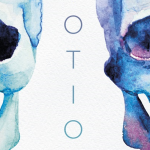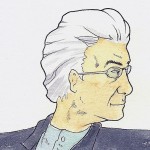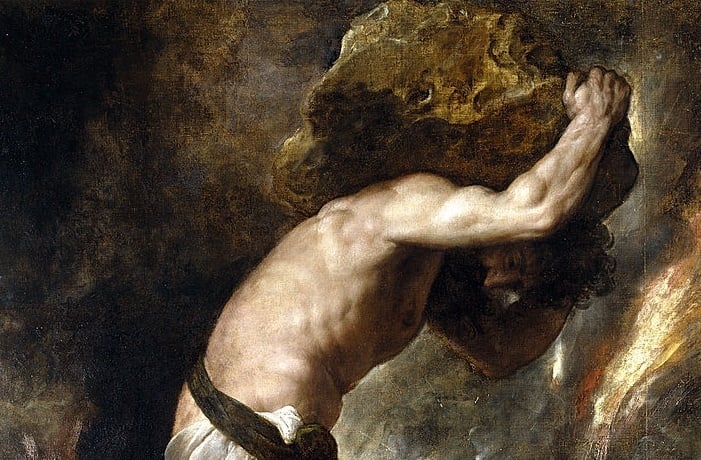
I’m a little sheepish about publishing book lists, even though my readers frequently tell me the lists are one of the things they like best about my blog. Granted, my readers might prefer reading book blurbs to my own grating writing–can’t blame them.
I’ve done a couple of TOP10 lists upon request. This is going to be the case this week. Henry Venema, who has written extensively about St. Paul Ricoeur’s hermeneutics in books such as Identifying Selfhood: Imagination, Narrative, and Hermeneutics in the Thought of Paul Ricoeur (remember Pope Francis as the man of hermeneutical sorrows?) will offer a class on the meaning of life for undergraduates in the near future. He asked for some suggestions.
This is a great idea. College should be about figuring out our place in the world, not the economy. Some of my best memories of college come from the classes I took with the author of one of the books on this list, Philosophers of Consciousness. I remember walking out of professor Webb’s classes, my head swimming, brimming with the awareness that I was doing theology and philosophy as a way of life, rather than racking up credits for law or med school, which I knew I’d never attend despite my family’s persistent suggestions. The books I read in those classes have saved me many a time when I fell into the hole of thinking I’ve seen it all. Thank you Professor Webb.
My challenge is twofold then:
a) I have to think of books that address the topic of life’s meaning profoundly, but
b) on a level that can be processed by undergraduates who only want credits for law and med school.
Below is my best stab at this difficult task. The list starts with a zero. My first choice is so obvious, this blog derives its name from this book’s title, that I have to give my readers more unusual fare for consideration:
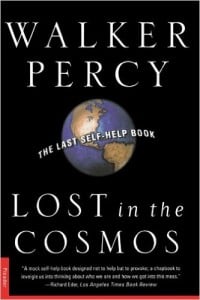 0) Lost in the Cosmos by Walker Percy
0) Lost in the Cosmos by Walker Percy
The late Walker Percy’s mordant contribution to the self-help book craze of the 1980s deals with the heavy abstraction of the Western mind and speculates about why writers may be the most abstracted and least grounded of all. (Before taking up novel writing, Percy was a medical doctor who became a patient in the very institution where he had worked.) The book disappeared for a time. Now it’s back in print. Take the quizzes in it, then take a walk–you need to be back in the world before you write another word.
“A mock self-help book designed not to help but to provoke; a chapbook to inveigle us into thinking about who we are and how we got into this mess.” ―Richard Eder, Los Angeles Times Book Review
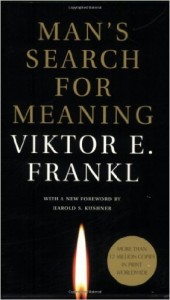 1) Man’s Search for Meaning by Viktor Frankl
1) Man’s Search for Meaning by Viktor Frankl
Psychiatrist Viktor Frankl’s memoir has riveted generations of readers with its descriptions of life in Nazi death camps and its lessons for spiritual survival. Between 1942 and 1945 Frankl labored in four different camps, including Auschwitz, while his parents, brother, and pregnant wife perished. Based on his own experience and the experiences of others he treated later in his practice, Frankl argues that we cannot avoid suffering but we can choose how to cope with it, find meaning in it, and move forward with renewed purpose. Frankl’s theory-known as logotherapy, from the Greek word logos (“meaning”)-holds that our primary drive in life is not pleasure, as Freud maintained, but the discovery and pursuit of what we personally find meaningful.
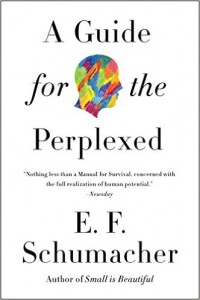 2) A Guide for the Perplexed by E.F. Schumacher
2) A Guide for the Perplexed by E.F. Schumacher
From one of the most influential thinkers of the 20th century, and the author of the international bestseller Small Is Beautiful, the reissue of a timeless treatise on the meaning of living.
In A Guide for the Perplexed, bestselling author E. F. Schumacher explores our relation to the world: our obligations—to other people, to the earth, to progress and technology, but most importantly to ourselves. If man can fulfill these obligations, then and only then can he enjoy a truly authentic relationship with the world—and truly know the meaning of living.
Schumacher argues that we need maps: a “map of knowledge” and a “map of living.” The concern of the mapmaker is to find for everything its proper place. For things out of place tend to get lost; they become invisible and their proper places are filled by other things that should not be there at all and therefore serve to mislead.
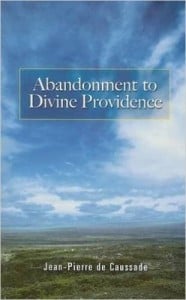 3) Abandonment to Divine Providence by Pierre de Caussade
3) Abandonment to Divine Providence by Pierre de Caussade
God hides behind the simplest of daily activities; finding Him is a matter of total surrender to His will. That’s the message of this eighteenth-century inspirational classic by a French Jesuit writer. The Reverend Jean-Pierre de Caussade (1675–1751) encouraged others to “live in the moment,” accepting everyday obstacles with humility and love.
Caussade’s counsel, which promises comfort and holiness to every soul with good will, has guided generations of seekers to spiritual peace. Some of his advice is particularly relevant to beginners; other teachings are geared to those possessing a more advanced degree of spirituality. All will recognize the voice of an authority, who combines practical and theoretical knowledge. Modern readers will find this volume a path to peace amid life’s worries and anxieties.
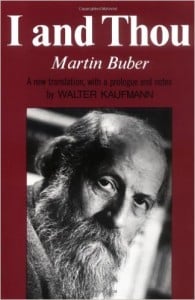 4) I and Thou by Martin Buber
4) I and Thou by Martin Buber
Martin Buber’s I and Thou has long been acclaimed as a classic. Many prominent writers have acknowledged its influence on their work; students of intellectual history consider it a landmark; and the generation born since World War II considers Buber as one of its prophets.
The need for a new English translation has been felt for many years. The old version was marred by many inaccuracies and misunderstandings, and its recurrent use of the archaic “thou” was seriously misleading. Now Professor Walter Kaufmann, a distinguished writer and philosopher in his own right who was close to Buber, has retranslated the work at the request of Buber’s family. He has added a wealth of informative footnotes to clarify obscurities and bring the reader closer to the original, and he has written a long “Prologue” that opens up new perspectives on the book and on Buber’s thought. This volume should provide a new basis for all future discussions of Buber.
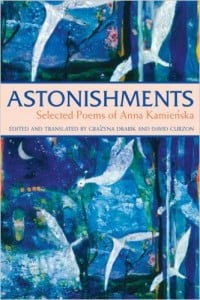 5) Astonishments by Anna Kamienska
5) Astonishments by Anna Kamienska
Kamienska came of age during the horrors of the Nazi occupation of Poland and lived under Communism. These experiences, as well as the sudden death of her husband, led her to engagement with the Bible and the great religious thinkers of the 20th century.
Her poems record the struggles of a rational mind with religious faith, addressing loneliness and uncertainty in a remarkably direct, unsentimental manner. Her spiritual quest has resulted in extraordinary poems on Job, other biblical personalities, and victims of the Holocaust. Other poems explore the meaning of loss, grief, and human life. Still, her poetry expresses a fundamentally religious sense of gratitude for her own existence and that of other human beings, as well as for myriad creatures, such as hedgehogs, birds and “young leaves willing to open up to the sun.”
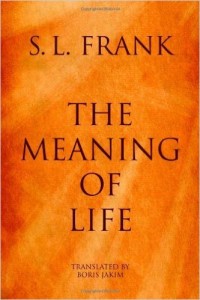 6) The Meaning of Life by S.L. Frank
6) The Meaning of Life by S.L. Frank
The Meaning of Life (published in Russian in 1925) is a distillation of S. L. Frank’s bitter experience of the years of Revolution and post-Revolution exile. It is, quite simply, a book about the search for meaning in suffering. Translator Boris Jakim calls it “the closest thing we have in the twenty-first century to the book of Job.”
Frank begins with the understanding that, if we do not possess the meaning of life, we are like drowning men who have no way to get to shore. Only by understanding that meaning can we save ourselves and get to solid ground. But what is the meaning of life? How does one define it and how does one find it? Frank here considers the question both socio-politically and metaphysically. He immerses himself deeper and deeper into spiritual being before finally finding the answer: it is the place where man’s soul touches Divinity, and it is Divinity that illuminates life with meaning. For Frank, the meaning of life is the indissoluble unity of perfect fulfillment and perfect clarity, the unity of light and Truth.
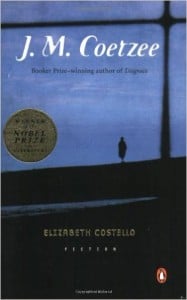 7) Elizabeth Costello by J.M. Coetzee
7) Elizabeth Costello by J.M. Coetzee
Elizabeth Costello is an Australian writer of international renown. Famous principally for an early novel that established her reputation, she has reached the stage where her remaining function is to be venerated and applauded. Her life has become a series of engagements in sterile conference rooms throughout the world – a private consciousness obliged to reveal itself to a curious public: the presentation of a major award at an American college where she is required to deliver a lecture; a sojourn as the writer in residence on a cruise liner; a visit to her sister, a missionary in Africa, who is receiving an honorary degree, an occasion which both recognise as the final opportunity for effecting some form of reconciliation; and a disquieting appearance at a writers’ conference in Amsterdam where she finds the subject of her talk unexpectedly amongst the audience. She has made her life’s work the study of other people yet now it is she who is the object of scrutiny. But, for her, what matters is the continuing search for a means of articulating her vision and the verdict of future generations.
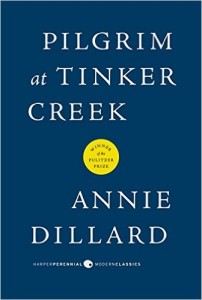 8) Pilgrim at Tinker Creek by Annie Dillard
8) Pilgrim at Tinker Creek by Annie Dillard
Pilgrim at Tinker Creek is the story of a dramatic year in Virginia’s Roanoke Valley. Annie Dillard sets out to see what she can see. What she sees are astonishing incidents of “beauty tangled in a rapture with violence.”
Her personal narrative highlights one year’s exploration on foot in the Virginia region through which Tinker Creek runs. In the summer, Dillard stalks muskrats in the creek and contemplates wave mechanics; in the fall, she watches a monarch butterfly migration and dreams of Arctic caribou. She tries to con a coot; she collects pond water and examines it under a microscope. She unties a snake skin, witnesses a flood, and plays King of the Meadow with a field of grasshoppers. The result is an exhilarating tale of nature and its seasons.
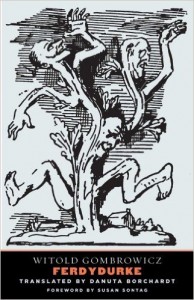 9) Ferdydurke by Witold Gombrowicz
9) Ferdydurke by Witold Gombrowicz
In this bitterly funny novel a writer finds himself tossed into a chaotic world of schoolboys by a diabolical professor who wishes to reduce him to childishness. Originally published in Poland in 1937, Ferdydurke was deemed scandalous and subversive by Nazis, Stalinists, and the Polish Communist regime in turn and was officially banned in Poland for decades. It has nonetheless remained one of the most influential works of twentieth-century European literature.
A wonderfully subversive, self-absorbed, hilarious book. Think Kafka translated by Groucho Marx, with commentaries.
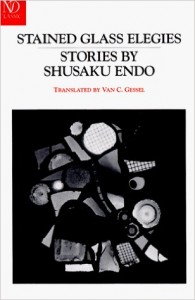 10) Stained Glass Elegies by Shusaku Endo
10) Stained Glass Elegies by Shusaku Endo
Endo’s impressive novels (When I Whistle, Silence, etc.) have wrapped themselves in powerful metaphorical situations and implicit autobiographical underpinnings–with Catholicism and illness the recurring themes. But, in this collection of eleven stories, autobiography is a bolder, more naked element–if no less artful than in the longer works. In three stories–“My Belongings,” “Unzen,” and “Mothers”–an authorial stand-in goes over the dreadful compromises of a life: a perfunctory baptism, a loveless arranged marriage, the neglect of a mother. And in every case the author’s alter ego embraces the horror, the intolerable pain of these situations–adopting a severe, remarkable sort of Jansenism, reflecting Endo’s sense of spiritual responsibility. A number of stories–“A Forty-Year-Old Man,” “The Day Before,” “Incredible Voyage”–have hospital/medical settings: reminders of Endo’s own long experience with lung disease, his utter familiarity with the body in extremis. Some also recapitulate the themes of early martyrdom of Japanese Christians–previously dramatized in such Endo works as Silence. And the short form shows Endo to be a far less somber writer than the novels might suggest (“Incredible Voyage” is very funny)–yet never less than a serious, morally self-probing one. Endo readers will welcome the opportunity to see him in this display of his more varied modes and moods.
BONUS: 5 books for the ambitious undergrad who might want to do an independent study:
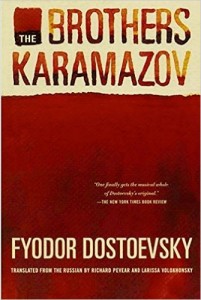 1) The Brothers Karamazov by Fyodor Dostoevsky
1) The Brothers Karamazov by Fyodor Dostoevsky
The Brothers Karamazov is a murder mystery, a courtroom drama, and an exploration of erotic rivalry in a series of triangular love affairs involving Karamazov and his three sons – the impulsive and sensual Dmitri; the coldly rational Ivan; and the healthy young novice Alyosha. Through the gripping events of their story, Dostoevsky portrays the social and spiritual strivings in what was both a golden age and a tragic turning point in Russian culture.
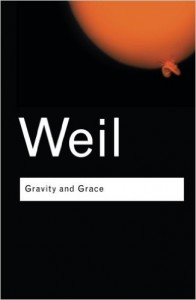 2) Gravity and Grace by Simone Weil
2) Gravity and Grace by Simone Weil
Gravity and Grace was the first ever publication by the remarkable thinker and activist, Simone Weil. In it Gustave Thibon, the farmer to whom she had entrusted her notebooks before her untimely death, compiled in one remarkable volume a compendium of her writings that have become a source of spiritual guidance and wisdom for countless individuals. On the fiftieth anniversary of the first English edition – by Routledge & Kegan Paul in 1952 – this Routledge Classics edition offers English readers the complete text of this landmark work for the first time ever, by incorporating a specially commissioned translation of the controversial chapter on Israel. Also previously untranslated is Gustave Thibon’s postscript of 1990, which reminds us how privileged we are to be able to read a work which offers each reader such ‘light for the spirit and nourishment for the soul’. This is a book that no one with a serious interest in the spiritual life can afford to be without.
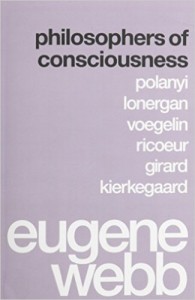 3) Philosophers of Consciousness by Eugene Webb
3) Philosophers of Consciousness by Eugene Webb
Philosophers of Consciousness is both an expository study of the thought of the six figures it focuses on and an original exploration of the themes they address. In addition, as Eugene Webb states, “it does not hesitate to probe the more problematic areas of the thought of each thinker and to suggest what to some of their advocates will probably seem rather bold and controversial interpreations of their ideas.”
The book reveals some deep differences that set the six off against one another in what is basically a clash between the intellectual emphasis of Lonergan and the more existential approaches of the other thinkers in this study. Readers of Kierkegaard may find much of Webb’s interpretation surprising and perhaps disturbing.
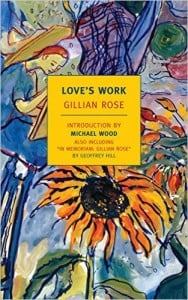 4) Love’s Work by Gillian Rose
4) Love’s Work by Gillian Rose
Love’s Work is at once a memoir and a book of philosophy. Written by the English philosopher Gillian Rose as she was dying of cancer, it is a book about both the fallibility and endurance of love, love that becomes real and endures through an ongoing reckoning with its own limitations. Rose looks back on her childhood, the complications of her parents’ divorce and her dyslexia, and her deep and divided feelings about what it means to be Jewish. She tells the stories of several friends also laboring under the sentence of death. From the sometimes conflicting vantage points of her own and her friends’ tales, she seeks to work out (seeks, because the work can never be complete—to be alive means to be incomplete) a distinctive outlook on life, one that will do justice to our yearning both for autonomy and for connection to others. With droll self knowledge (“I am highly qualified in unhappy love affairs,” Rose writes, “My earliest unhappy love affair was with Roy Rogers”) and with unsettling wisdom (“To live, to love, is to be failed”), Rose has written a beautiful, tender, tough, and intricately wrought survival kit packed with necessary but unanswerable questions.
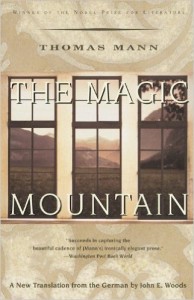 5) The Magic Mountain by Thomas Mann
5) The Magic Mountain by Thomas Mann
One of the most influential and celebrated German works of the 20th century has been newly rendered in English by Woods, twice winner of the PEN Translation Prize. First published in 1929, Mann’s novel tells the story of Hans Castorp, a modern everyman who spends seven years in an Alpine sanatorium for tuberculosis patients, finally leaving to become a soldier in World War I. Isolated from the concerns of the everyday world, he is exposed to the wide range of ideas that shaped a world on the verge of explosion. Considering what was to follow, the most poignant moment comes when Naphta, a Jewish-born Jesuit, defends the use of terror and the taking of life for the sake of an all-encompassing idea. Woods’s work reads more naturally than the original translation, which, while faithful to the German, was stiff and forbidding. A necessary addition to any fiction collection.
And for the smartass student inevitably stuck on the track towards grad school there is one final book that deconstructs the question of meaning:
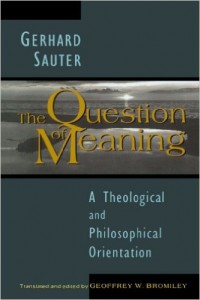 The Question of Meaning by Gerhard Sauter
The Question of Meaning by Gerhard Sauter
In this penetrating study of the concept of meaning, Gerhard Sauter shows that — contrary to popular belief — the human quest for meaning is a relatively recent development, arising only after the deconstruction of metaphysics at the end of the nineteenth century. Since then, people have continually sought after the meaning of history, the meaning of their labors, their sufferings, their lives. In an attempt to construct new areas of orientation, meaning has become a dominant term in hermeneutics, in philosophy of language, in psychology, in sociology, in social theory, and in all domains influenced by them, including politics.
In former times the term meaning related to statements that could be proven as either true or false, while the term sense marked the ability to perceive reality and to respond to it. In this careful and elaborate analysis of the history of the term meaning, Sauter reevaluates the differences and the connections between meaning and sense in the context of an age that has jettisoned its own metaphysical moorings. Sauter interprets biblical references to meaning — in Job and Ecclesiastes, for example — and compares them with modern concepts of the term. He probes beyond the quest for meaning to ask what the quest itself means, and questions whether the modern quest for meaning in fact weakens our perceptions of everyday reality. His conclusions lead to a new kind of quest: an intellectual and spiritual adventure to discover sense encountering contingent reality.
An alternative version of this post would’ve also featured Calvino’s Mr. Palomar, Rosenzweig’s Understanding the Sick and the Healthy, Julia Hartwig’s In Praise of the Unfinished, and Zbigniew Herbert’s Collected Prose.
You should also check out the 11 Most Important Critiques of Modernity According to Thomas Pfau.
Please also consider making a donation to this blog through the donation button on the upper right side of its homepage.
Stay in touch! Like Cosmos the in Lost on Facebook:

